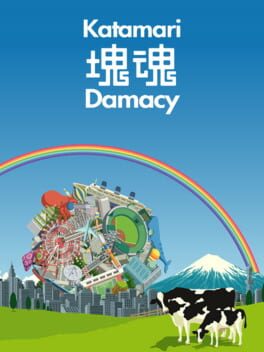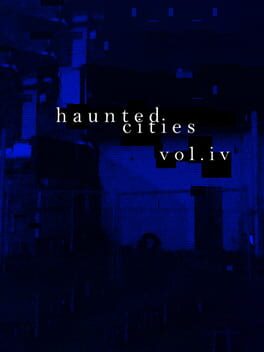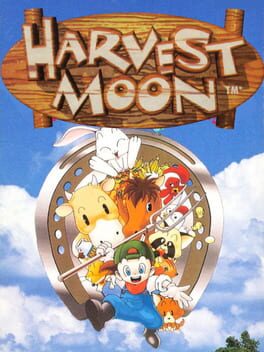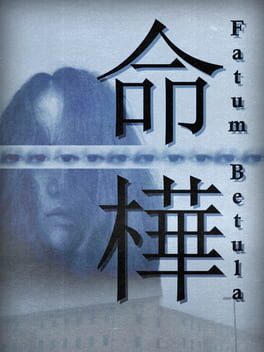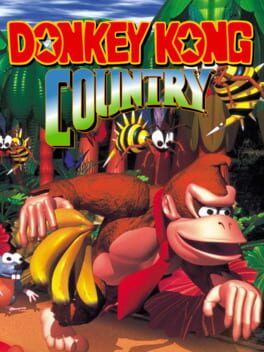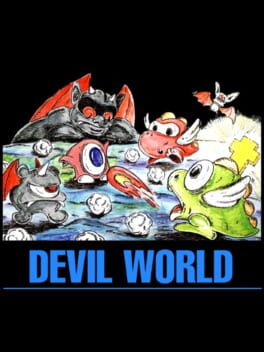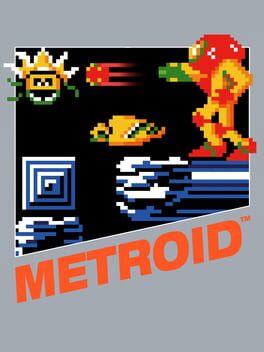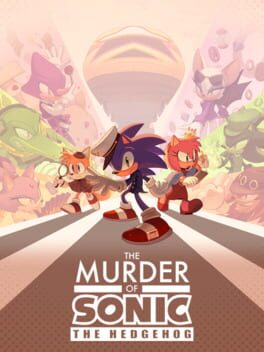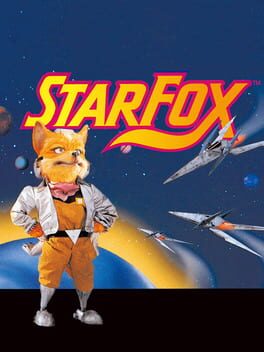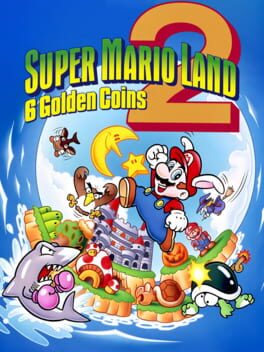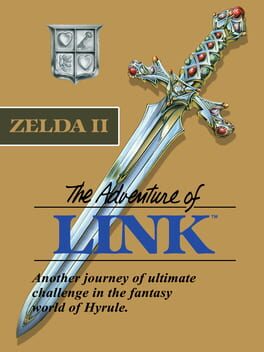Grebehumaine
2004
Sublime. The music, design, sound effects, and general goofiness are mesmerizing, but the real joy comes from the progression of gameplay and game feel throughout. Despite performing the same very simple actions, (rolling and turning a ball to pick things up) the FEEL of these actions changes drastically as the level (and the game as a whole) progresses. The joy as you shift from defenseless prey to predator as you outgrow animals is awesome. It is also incredible how the geometry of the level changes as you grow- what were once obstacles become paths, and then later mere objects to adhere to your ever-growing katamari. I loved the feeling of power as you achieve the desired goal with time leftover, and spend the last minutes on a careless mad-dash, steamrolling everything in your path.
While the base game is very casual and easily completed, there is so much challenge if you seek it out- not only in the difficult Ursa Major and Taurus levels, but also in exploring and trying to acquire every item and present. I don't think I could ever get bored of this.
While the base game is very casual and easily completed, there is so much challenge if you seek it out- not only in the difficult Ursa Major and Taurus levels, but also in exploring and trying to acquire every item and present. I don't think I could ever get bored of this.
This review contains spoilers
Exclusion Zone: The Archeology of Pain. You set off from a walled compound, out into what seems like an empty, foggy wasteland, making your way eventually to a long-abandoned, otherworldly shrine which crackles with radioactive contamination. You explore the site for clues, finding only glimpses of the outlines of what tragedy might have happened here long ago. There is a palpable anticipation as you confront this massive structure, its architrcture imposing on you and seemingly staring back into you.
Grandmother's Garden: A spiritual sequel/reworking of "grandmother" from the first Haunted Cities collection. After getting a key from Grandmother, who sits silently watching static on TV, you wander around Grandmother's Garden- a wooded farmstead teaming with viscera. Blood, bile, and phlegm are drawn from the well, to feed, feed, feed the parasitic trees. Get digging.
Tenement: The piece de resistance of the collection. You explore a neighborhood of tenement buildings suspended over a yawning void. This strange community is populated by digital ghosts with animal skulls for faces, each of which tells you a little story. This is the best of KittyHorrorshow's writing, in my opinion; the denizens of Tenement interweave the mundanity and horror of city living, describing hotels that eat you alive, or rooms pulsing with organs, all with a wistful, melancholy boredom. As you explore the town, the call of the abyss is inescapable, and eventually you will jump, only to find yourself in the sewers of Tenement, similarly haunted by storytellers. When you find a ladder up, you will return to the surface, but the town will be different- new denizens, a darker color to the sky, new films advertised on the theatre marquee (e.g. "The Theatre's Exposed, Beating Heart), alleys that are... not quite the same as before... You are trapped in a cycle of suicide and rebirth, locked in a lonely, decaying purgatory.
Lethargy Hill: There's no mistaking it this time- you are now in hell. You walk around under a blood red sky, never out of sight of the monstrous tick-like house on the hill. As you move, you are bombarded by unescapable text, recounting to you the story of an all-powerful hate-filled woman creating a family to make her miserable life even worse. This narrative, in turn, is interrupted by another voice, a metatextual screed against this world, this game itself. The apocalyptic world you wander is tearing itself apart, screaming, assaulting you the player. Brutal.
Grandmother's Garden: A spiritual sequel/reworking of "grandmother" from the first Haunted Cities collection. After getting a key from Grandmother, who sits silently watching static on TV, you wander around Grandmother's Garden- a wooded farmstead teaming with viscera. Blood, bile, and phlegm are drawn from the well, to feed, feed, feed the parasitic trees. Get digging.
Tenement: The piece de resistance of the collection. You explore a neighborhood of tenement buildings suspended over a yawning void. This strange community is populated by digital ghosts with animal skulls for faces, each of which tells you a little story. This is the best of KittyHorrorshow's writing, in my opinion; the denizens of Tenement interweave the mundanity and horror of city living, describing hotels that eat you alive, or rooms pulsing with organs, all with a wistful, melancholy boredom. As you explore the town, the call of the abyss is inescapable, and eventually you will jump, only to find yourself in the sewers of Tenement, similarly haunted by storytellers. When you find a ladder up, you will return to the surface, but the town will be different- new denizens, a darker color to the sky, new films advertised on the theatre marquee (e.g. "The Theatre's Exposed, Beating Heart), alleys that are... not quite the same as before... You are trapped in a cycle of suicide and rebirth, locked in a lonely, decaying purgatory.
Lethargy Hill: There's no mistaking it this time- you are now in hell. You walk around under a blood red sky, never out of sight of the monstrous tick-like house on the hill. As you move, you are bombarded by unescapable text, recounting to you the story of an all-powerful hate-filled woman creating a family to make her miserable life even worse. This narrative, in turn, is interrupted by another voice, a metatextual screed against this world, this game itself. The apocalyptic world you wander is tearing itself apart, screaming, assaulting you the player. Brutal.
1996
What I assumed would be a cozy, relaxing game ended up giving me a premature midlife crisis. Day in and day out, waking up and performing the same, repetitive tasks, hurrying to plant and harvest crops in order to buy more crops to plant and harvest, the workday fading in a blink of an eye all while the years stretched on endlessly past the horizon, all this meaningless toil, for what? For what? To repeatedly rehearse the same vapid lines with the girls of the town, flirting with Eve, the independent yet troubled alcoholic, only for her to give up her life and personality to marry me, never leaving the house, so miserable in her life choices that she loses affection points if you go to bed with her (is this a bug, or merely a reflection of her misery at playing the role of housewife?) I gave up about 2 years in.
Completely devastating. I was completely swallowed up by the tragedy and the despair and the hope against hope of this broken world filled with broken people. The dialogue is so beautiful and gut-wrenching and the experience of playing Harry really makes you feel the weight of every decision. Playing as a deeply fucked up protagonist lets the player accept the consequences of every bad roll, every mistake, and really lean in to the roleplaying elements moreso than most games that pretend to have that kind of gameplay. The collapsing of political, emotional, and supernatural crises is so acute and powerful and deftly done, and resonated with me at a deeply spiritual level.
1997
I really really wanted to love this. It has so many things going for it that normally I'm all for: letting the player explore freely without holding their hand; allowing the player to encounter difficult and punishing scenarios right off the bat; a serious exploration of the morality of different factions and moral quandaries that go beyond 'good' and 'evil' choices... but unfortunately the frustration and the bugginess of it all proved too much for me. There is so much that doesn't get explained to you- I died so many times in the first cave to literal rats because I straight-up couldn't figure out how to attack or access my inventory. Later on, it turns out the way to resupply your companions' ammunition or change their weapons is to use the "steal" function and place those items in their inventories. You frequently end up in combat situations that you are almost impossible to survive, but instead of feeling immersed in a dangerous world full of death and hard choices, the meaningfulness of death just dissipates as you learn to save scum before any challenging encounter.
All of these are difficult game design choices that balance player freedom and frustration, which are all understandable. But what really drove me over the edge was the simple fact that your companions block your path. How many times do you walk into a small room, only for fucking Ian to follow you in and then just stand unmoving in the doorway, blocking you from ever leaving? The final straw was when I got finished talking to the Gunrunners, went to leave the island, and found the guy just standing at the other end of the bridge, blocking the path. Nothing you say to him can get him to move, and what's worse is my party members had followed me onto the narrow bridge, blocking my way back onto the island. Sure, I could always load an earlier save from a couple hours earlier, but the thought of it just fills me with dread. I think canonically my character is just forever stuck on a thin bridge over a pit of toxic waste, blocked in by two idiots who won't get out of the way.
All of these are difficult game design choices that balance player freedom and frustration, which are all understandable. But what really drove me over the edge was the simple fact that your companions block your path. How many times do you walk into a small room, only for fucking Ian to follow you in and then just stand unmoving in the doorway, blocking you from ever leaving? The final straw was when I got finished talking to the Gunrunners, went to leave the island, and found the guy just standing at the other end of the bridge, blocking the path. Nothing you say to him can get him to move, and what's worse is my party members had followed me onto the narrow bridge, blocking my way back onto the island. Sure, I could always load an earlier save from a couple hours earlier, but the thought of it just fills me with dread. I think canonically my character is just forever stuck on a thin bridge over a pit of toxic waste, blocked in by two idiots who won't get out of the way.
2020
A spooky atmospheric exploration of unsettling polygonal environments. The most fun is to be had wandering around the different areas for the first time, with the standout being the gorgeously melancholic 'Autumn' forest, talking to the strange NPCs and trying to figure out the clues. Once you've completed your first ending of the game by watering the birch with one of several fluids, most of the gameplay involves retracing your steps to find new ways of getting fluids. Some of these are straigh-forward and logical, while others involve baffling solutions without any clues (throw a jar at a painting to get a painting in a jar; walk in and out of a church door a dozen times until a moon appears behind the church, etc.) There is a really cool Secret area though found by exploring the boundaries that will show you a behind-the-scenes video by the developer which is very neat!
1994
1984
The religious imagery is very funny- you're just a little dragon collecting bibles to defeat a cute little Satan.
On first glance it seems like a cheap knockoff of Pac-Man, but the Devil's screen-moving mechanic, though simple, really transforms the stage and makes the play really engaging. That being said, it's a very simple game, with only one stage and a couple enemy types. Good, challenging fun, but runs it's course pretty quick.
On first glance it seems like a cheap knockoff of Pac-Man, but the Devil's screen-moving mechanic, though simple, really transforms the stage and makes the play really engaging. That being said, it's a very simple game, with only one stage and a couple enemy types. Good, challenging fun, but runs it's course pretty quick.
Low-key obsessed with Elephant Daisy.
Maybe I'm crazy but the sound effect it plays when you get the Wonder Flower sounds a little like when you hit the frog timer in Wario Land 4? Even if it's just a coincidence there is something very Wario Land 4 about the mechanic of getting through a stage only for it to radically change in an unexpected way. Maybe I just need to replay Wario Land 4.
Maybe I'm crazy but the sound effect it plays when you get the Wonder Flower sounds a little like when you hit the frog timer in Wario Land 4? Even if it's just a coincidence there is something very Wario Land 4 about the mechanic of getting through a stage only for it to radically change in an unexpected way. Maybe I just need to replay Wario Land 4.
1986
The flaws of the original Metroid are well apparent: despite being a pretty small map, the visual similarity of hallways makes it a real maze to navigate (especially without any in-game map) and the ridiculous amounts of random wall-bombing needed to progress make the game less of a puzzle and more tedious brute-force trial and error.
That being said, while it wasn't executed perfectly, the core idea here is so brilliant I'm willing to forgive a lot of that. On top of that, the visuals, music, and general mysterious atmosphere are executed so well, and are such a radical departure from the other games Nintendo was releasing at the time, that it real feels like you're playing something special. Don't get me wrong, Super Metroid absolutely blows this out of the water, but there is still the germ of that greatness within the original game.
That being said, while it wasn't executed perfectly, the core idea here is so brilliant I'm willing to forgive a lot of that. On top of that, the visuals, music, and general mysterious atmosphere are executed so well, and are such a radical departure from the other games Nintendo was releasing at the time, that it real feels like you're playing something special. Don't get me wrong, Super Metroid absolutely blows this out of the water, but there is still the germ of that greatness within the original game.
1994
I played Metroid Dread pretty recently, so I was really curious about going back and playing some classic Metroid. I've got to say, the vibes on this one are immaculate, and the feeling of exploring the world was much more alien and mysterious (the silent protagonist and lack of dialogue really helps). That being said, gameplay-wise, I think Dread definitely has this beat. The jumping here is a little janky, and I spent way too much time trying to spin jump my way out of a hole to no avail because I couldn't get the timings quite right to change direction in mid air. Also, the bosses are really very straight-forward and easy, and didn't give me any challenge at all until Ridley, who I struggled a lot with until I realized that I was supposed to have collected more extra health tanks before I got to that point. But overall an extremely solid game.
Obviously no one should have high expectations for a cute little April Fool's visual novel, but the fact is there really isn't any deduction happening in this game. You basically just click through dialogue, click on the clue you found in the room, and then play a little Sonic minigame that stands in as you "thinking." The handful of actual choices you can make are solvable just by brute force guessing down the list of people. I guess it probably would be cuter if I had a connection to these characters.
1993
For some reason I had a really hard time getting used to the control scheme (any of the control schemes really) and would play the practice level over and over again and get really frustrated. Eventually it just clicked and I had a lot of fun breezing through the levels. There are still a lot of issues, notably framerate problems and obstacles popping up out of nowhere right in front of your arwing. You really get the feeling that this was pushing the SNES hardware to the absolute limit. But despite, or maybe because of all that, there is an irresistible charm to the abstract geometric aesthetic. It really feels like those retro-futuristic 80s sci fi targeting computers and shit in Star Wars. And the soundtrack and sound effects really elevate that aesthetic.
As a huge Wario fan this felt deeply satisfying to play as it has so many of the same charming quirks as the GameBoy Color WarioLand games. Though it's mechanically much simpler, there is endless charm here, and i was really blown away by the creativity in the level themes and enemies- a whole zone is set inside a giant toy Mario, you go to space, you get eaten by a turtle, etc. A d the best part is the Pumpkin Zone, a whole Halloween-themed zone with Jason lookalikes, vampires, and all manners of Yokai. A really charming, quick platformer game.
I suffered through this so much as a kid only to get through the first palace. I was so frustrated and confused by the whole ordeal and i just felt completely useless. I knew eventually I would have to return to this nightmare and put it to rest to avenge my younger self. Turns out the game is actually only playable if you play glued to a walkthrough, with so many necessary items hidden in completely random places (items hidden in scenes located on just a random tile on the world map), so many enemies immune to all but the most precise of attacks (the jump-at-the-head strat makes short work of most of the tough enemies, but who would think to do that on their own?). And then the final boss, Link's shadow, is basically only possible to defeat by crouching in the corner and stabbing his legs when he comes close to you, a super anticlimactic end to the game. Once i warmed up to the palaces, it was pretty fun to traverse them for the most part, and combat gets a lot more fun once you get the down thrust, but it lacked the satisfying puzzle mechanics of better Zelda games. And the overworld is for the most part pretty forgettable, with very repetitive towns and characters. The music is pretty excellent though, and at times does create a nice atmosphere. Glad to put this one behind me.
